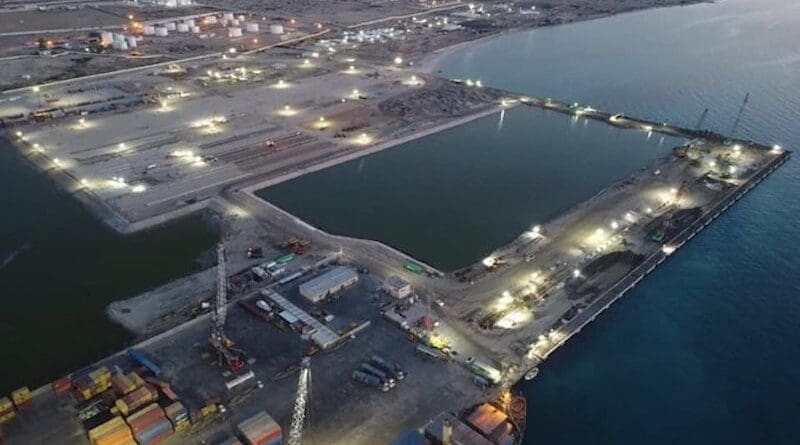In the early start of 2024, the tension in the Horn of Africa escalated since Ethiopian Prime Minister Abiy Ahmed signed a deal with President Muse Bihi Abdi of Somaliland, a breakaway region of Somalia to use its Red Sea port of Berbera.
Over Somaliland’s 50-year lease of a Berbera port to Ethiopia, anger has grown in Somalia. Ethiopia’s economy is struggling with no sea access, so a landlocked country has decided to break its geographic prison to obtain access to the Red Sea and the Suez Canal, which might enhance its access to Europe. The agreement rests on a wide scope of cooperation to give a landlocked country Ethiopia, direct commercial and military access to the Red Sea. In return, Ethiopia promises to provide an in-depth assessment of Somaliland’s long-standing quest for official recognition as an independent country which will make Ethiopia the first country to recognize Somaliland as a sovereign state.
The deal has been fiercely opposed by Somalia that would grant Ethiopia access to the strategically important Gulf of Aden and beyond that, to the Red Sea. The Federal Government of Somalia says Ethiopia’s step is an offensive that could jeopardize the stability and peace of the already unstable region. On the matter, Somalia appealed for the withdrawal of its ambassador to Ethiopia, claiming that the port agreement would spark unrest and imperil stability in the Horn of Africa. President Hassan Sheikh Mohamud warned Ethiopia, “This is a piece of land that belongs to Somalia and we will not stand idly by and watch our sovereignty being compromised”.
There is a long and tense relationship between Somalia and Somaliland since Mogadishu regards the 5 million people self-governing region as part of its own territory. More than 30 years ago, Somaliland fought an independence war mostly along the ethnic lines and broke apart from Somalia. However, the groundbreaking agreement has created uproar in the region and infuriated Somalia, which sees it as an act of aggression and an egregious violation of its sovereignty. The Somali government strongly condemned and rejected the Ethiopian action as illegal and aggressive. The country urged Ethiopia and Somaliland to withdraw from the agreement, but both sides consider it a historic agreement and are unwilling to back down.
With 120 million people, Ethiopia is one of the most populous countries in Africa, but its economy is constrained by its lack of sea access. The recent deal will appear to provide Ethiopia with unhindered access to the Red Sea, allowing it to utilize the Berbera port for export-import activities. Currently, Ethiopia primarily depends on Djibouti for its port operations, facilitating both inbound and outbound trade. However, Djibouti charges Ethiopia billions of dollars annually in port fees which impelled Ethiopia to explore other alternatives in neighboring Somaliland, Sudan, Eritrea, and Kenya but Ethiopia’s plan to use any of these ports has not yet come to pass.
From a geostrategic standpoint, Ethiopia’s focus on Berbera is undoubtedly logical. Berbera port stands as the closest point to Ethiopia, which will provide an opportunity to open trade to the vast but isolated eastern region, particularly for livestock and agricultural exports. According to Ethiopian authorities, the port agreement is advantageous for both countries as it will help Ethiopia to share its military and intelligence expertise with Somaliland to protect common interests. To support this, Ethiopia plans to build both a commercial maritime zone and a military base in Somaliland. Besides, the port will help the Ethiopian prime minister to rehabilitate his unpopular image in the country due to his conflicts in the Tigray region, the bloody insurgencies in the Amhara and Oromo regions, and the recent economic setbacks the country has experienced. Over the years, Ethiopian authorities have presented access to the sea as an existential concern, this new agreement would provide Abiy with significant internal political gains.
In conclusion, the agreement between Ethiopia and Somaliland holds considerable economic prospects, but simultaneously, it is anticipated that this agreement will face substantial obstacles in the future. Ethiopia’s pursuit is to reduce dependence on a single port, stimulate economic growth, and establish an alternative trade route by securing access to the Red Sea through the port of Berbera.
However, the pact has exacerbated the long-standing animosity between Somalia and Somaliland which is fueling already existing tensions. Moreover, the international community’s involvement risks wider geopolitical repercussions and potential intervention, particularly for global powers with interests in the Horn of Africa. For example, the China-Pakistan Economic Corridor (CPEC) project as part of the Belt and Road Initiative (BRI) launched by rising global power China, has the potential to be a game-changer for poorer countries. However, it is unfortunate that various hostile powers are covertly preparing strategies to contain the rise of China in the regions bearing geopolitical and geo-economic significance. So, will a small and poor country like Ethiopia be able to resist foreign conspirators?






